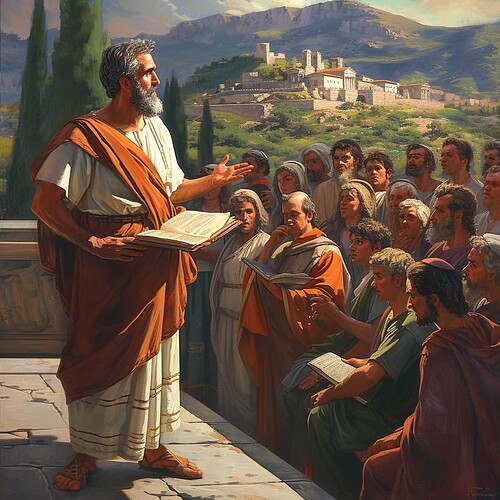 February 20: 1 Corinthians 1,2 - Factionalism and Divine Wisdom
February 20: 1 Corinthians 1,2 - Factionalism and Divine Wisdom
 Introduction
Introduction
In these chapters, Paul addresses the tribalism in the Corinthian church and highlights the supremacy of God’s wisdom over human wisdom. He centers his discussions on unity, humility, and the paramountcy of God’s wisdom.
 The Corinth Church’s Division: Factionalism Distorts the Gospel
The Corinth Church’s Division: Factionalism Distorts the Gospel
Paul appeals to the Corinthian church, mired in subdivision and factionalism, to unify under the name of Jesus Christ. The Corinthian believers were aligning themselves with individual leaders, leading to disunity and misconstruing the Gospel.
Key Verse: 1 Corinthians 1:10 “I appeal to you, brothers and sisters, in the name of our Lord Jesus Christ, that all of you agree with one another in what you say and that there be no divisions among you, but that you be perfectly united in mind and thought."
 Gospel Preaching: The Message of the Cross
Gospel Preaching: The Message of the Cross
Paul emphasizes that the central message of the Gospel—the crucifixion of Jesus Christ—may appear foolish to those not saved, yet it is the pathway to salvation for those who believe.
Key Verse: 1 Corinthians 1:18 “For the message of the cross is foolishness to those who are perishing, but to us who are being saved it is the power of God."
 Key Themes and Reflections
Key Themes and Reflections
The chapters highlight the dangers of division and factionalism within the church and the power of the Gospel’s core message. It also underscores the supremacy of God’s wisdom over human understanding.
- Unity in Christ: The factionalism within the Corinthian church serves as a reminder of the importance of unity in the body of Christ.
- True Wisdom: The chapters contrast worldly wisdom with God’s wisdom. True wisdom is recognizing the power of the cross as the divine pathway to salvation.
 Today’s Application
Today’s Application
We must actively foster unity within our churches and communities while acknowledging Christ as our ultimate leader. Recognizing and leaning on God’s wisdom, as opposed to worldly wisdom, ensures we never lose sight of the Gospel’s core message.
 Hidden Gem
Hidden Gem
The “Wisdom of God,” as Paul frames it, reveals itself through the Spirit, as our natural minds cannot understand it. It’s not about intellectual capacity but spiritual receptivity.
 Reflective Q&A
Reflective Q&A
![]() Why did Paul focus on the cross’s message?
Why did Paul focus on the cross’s message?
A: Paul understood the power of the crucifixion - while seemingly foolish to some, it’s the ultimate demonstration of God’s love and salvation.
![]() What can the modern church learn from the Corinthian church?
What can the modern church learn from the Corinthian church?
A: The value of unity and aligning under one leader – Jesus Christ can guide churches today in mitigating division and factionalism.
![]() How can we gain God’s wisdom?
How can we gain God’s wisdom?
A: God’s wisdom isn’t about intellectual prowess. It’s about spiritual receptivity and openness to the guiding of the Holy Spirit.
 Join the Discussion
Join the Discussion
Have you experienced division within your Christian community? How did you address it? Share your thoughts and reflections!
